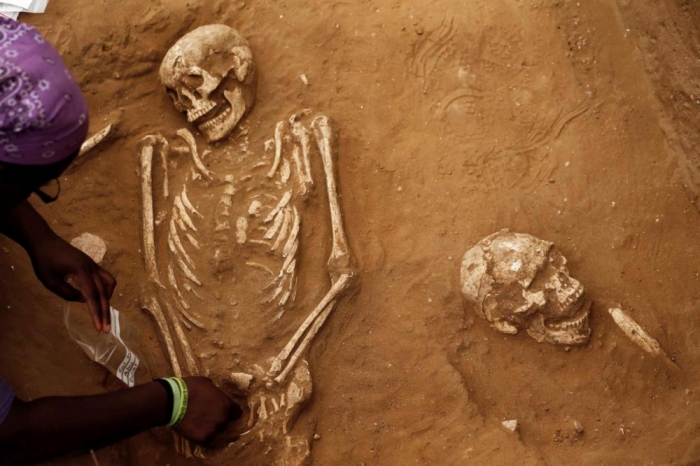Archaeological Discovery: Ancient Philistine Cemetery in Israel Might Solve Mystery of Biblical 'Villains'

A remarkable archaeological discovery in Israel could shed light on the mystery of the Philistines, a villainous group of people mentioned throughout the Bible whose origins have remained unknown.
The National Geographic reported that a cemetery with human remains was found on the southern coast of Israel outside the walls of the ancient Ashkelon, a major Philistines city that thrived between the 12th and 7th centuries B.C.
The cemetery contains the remains of over 211 bodies, dated from the 11th to 8th centuries B.C.
The find is significant because while there have been a number of Philistine cities and ancient artifacts discovered, few have contained human remains, allowing for researchers to study their origins.
Daniel M. Master, professor of archaeology at Wheaton College, said: "After decades of studying what Philistines left behind, we have finally come face to face with the people themselves."
"With this discovery we are close to unlocking the secrets of their origins," he added, according to The Associated Press.
Master revealed that the cemetery was actually discovered three years ago, but archaeologists didn't speak publicly about the discovery because it might have led to demonstrations from Ultra-Orthodox Jews.
"We had to bite our tongues for a long time," Master said, adding that in the past such groups had demonstrated against disturbing human remains.
Lawrence Stager, an architect and one of the leaders behind the expedition, said the remains will help answer a lot of questions about the Philistines.
"The Philistines have had some bad press, and this will dispel a lot of myths," Stager asserted.
National Geographic noted that the Philistines are seen as among the "most notorious villains of the Hebrew Bible," described as an uncircumcised group that controlled the coastal regions of southern Israel and the Gaza Strip, where they warred with the Israelis.
The Philistines are also believed to have seized the Ark of the Covenant for a time, and produced villainous figures, such as Delilah, who robbed Samson of his strength by cutting his hair, and the giant Goliath, who was brought down by David.
DNA and isotopic analysis, as well as biological distance studies, will be conducted to determine the origin of the human specimens in the cemetery.
National Geographic reported that a number of researchers believe the Philistines could be tied to the Sea Peoples, a confederation of tribes that carried out raids across the eastern Mediterranean at the end of the late Bronze Age.
Other experts, such as Aren Maeir, an archaeologist at Bar-Ilan University, who has directed excavations at the major Philistine city of Gath for two decades, said that the origins of the Philistines remain a mystery.
Maeir suggested that the Philistines were an "entangled" culture of various groups of people from different regions in the Mediterranean, who settled down with the local Canaanite population of the time.
Assaf Yasur-Landau, an archaeologist at Haifa University and co-director of the Tel Kabri project, said: "Finding the Philistine cemetery is fantastic because there are so many questions regarding their genetic origins and their interconnections with other cultures."




























